
Laser and precision motion company GSI Group is set to expand its offering of the latter with the acquisition of Lincoln Laser for $11 million in cash.
based in Phoenix, Arizona, Lincoln Laser provides ultrafast polygon scanners and other beam-steering products for a variety of markets including medicine and food processing. The deal is expected to close later this month.
According to GSI, the Lincoln Laser product line is highly complementary to GSI's existing galvanometer-based beam delivery products, sold largely through its Cambridge Technology subsidiary.
Cambridge combination
Lincoln Laser will be integrated within Cambridge Technology after the acquisition is closed, with GSI’s CEO John Roush saying in a company statement:
“The combination of Lincoln Laser Company with Cambridge Technology creates an expanded range of highly competitive beam delivery technologies that significantly enhances our value proposition with OEM customers in growth applications.”
Chris Tecca, who heads up the Cambridge Technology division within GSI, added: “As the functionality of lasers becomes faster and more precise, we are now well positioned to provide the latest in ultrafast beam steering solutions to our customers.”
Both Cambridge Technology and Lincoln Laser have extensive and long-running expertise in laser beam delivery, together boasting more than 80 years of development experience.
And both tend to be closely involved with OEM customers, with Cambridge’s key market applications including advanced industrial processes, microscopy, and ophthalmology.
Lincoln’s application sectors are somewhat different, including high-speed sorting and inspection systems, wide-field retinal imaging systems, large-scale metrology equipment, and laser-based skin treatment systems.
Roush added in an investor conference call to discuss GSI’s latest financial results: “Their [Lincoln’s] technology is particularly well suited to ultrafast laser applications and increases our presence in strategically important applications such as optical coherence tomography (OCT), and food and beverage processing.”
China demand slips
For its latest quarter GSI posted a slight year-on-year decline in sales to $92.3 million – something that was largely due to the sale of its UK-based JK Lasers division to Germany’s Trumpf earlier this year.
Sales of laser-related products accounted for $41.3 million in the quarter, with precision motion revenues up nearly 23 per cent year-on-year to $19.9 million.
Roush said that strong orders from medical applications had helped to mitigate a noticeably weaker industrial sector during in the quarter. Speaking to investors, he added that laser orders from customers in China had slipped by 25 per cent year-on-year, while demand for equipment used in PCB production fell dramatically.
Partly as a result of that, GSI is again looking to trim costs and improve operating efficiency with a round of restructuring, something that Roush is confident will position the firm more strongly for the future and any further weakness coming out of China.
Those latest actions should end up reducing GSI’s annual costs by around $5 million, with the company’s operations becoming based more closely around specific geographical centers of excellence. That should be completed by the middle of next year.
CEO Roush also hinted at further merger and acquisition activity, telling investors that several other “bolt-on” deals were in the pipeline.
MOST READ
- RoboSense is to Produce the First Chinese Multi-beam LiDAR
- China is to Accelerate the Development of Laser Hardening Application
- Han’s Laser Buys Canadian Fiber Specialist CorActive
- SPI Lasers continues it expansion in China, appointing a dedicated Sales Director
- Laser Coating Removal Robot for Aircraft
PRODUCTS
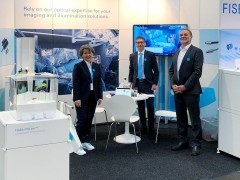 FISBA exhibits Customized Solutions for Minimally Invasive Medical Endoscopic Devices at COMPAMED in
FISBA exhibits Customized Solutions for Minimally Invasive Medical Endoscopic Devices at COMPAMED in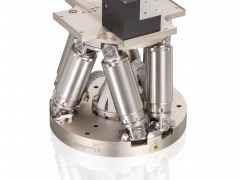 New Active Alignment System for the Coupling of Photonic Structures to Fiber Arrays
New Active Alignment System for the Coupling of Photonic Structures to Fiber Arrays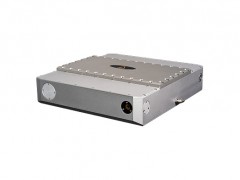 A new industrial compression module by Amplitude
A new industrial compression module by Amplitude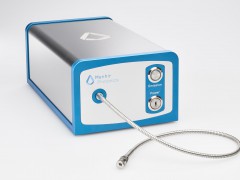 Menhir Photonics Introduces the MENHIR-1550 The Industry's First Turnkey Femtosecond Laser of
Menhir Photonics Introduces the MENHIR-1550 The Industry's First Turnkey Femtosecond Laser of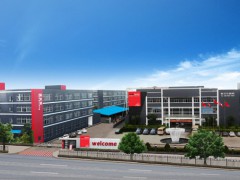 Shenzhen DNE Laser introduced new generation D-FAST cutting machine (12000 W)
more>>
Shenzhen DNE Laser introduced new generation D-FAST cutting machine (12000 W)
more>>
